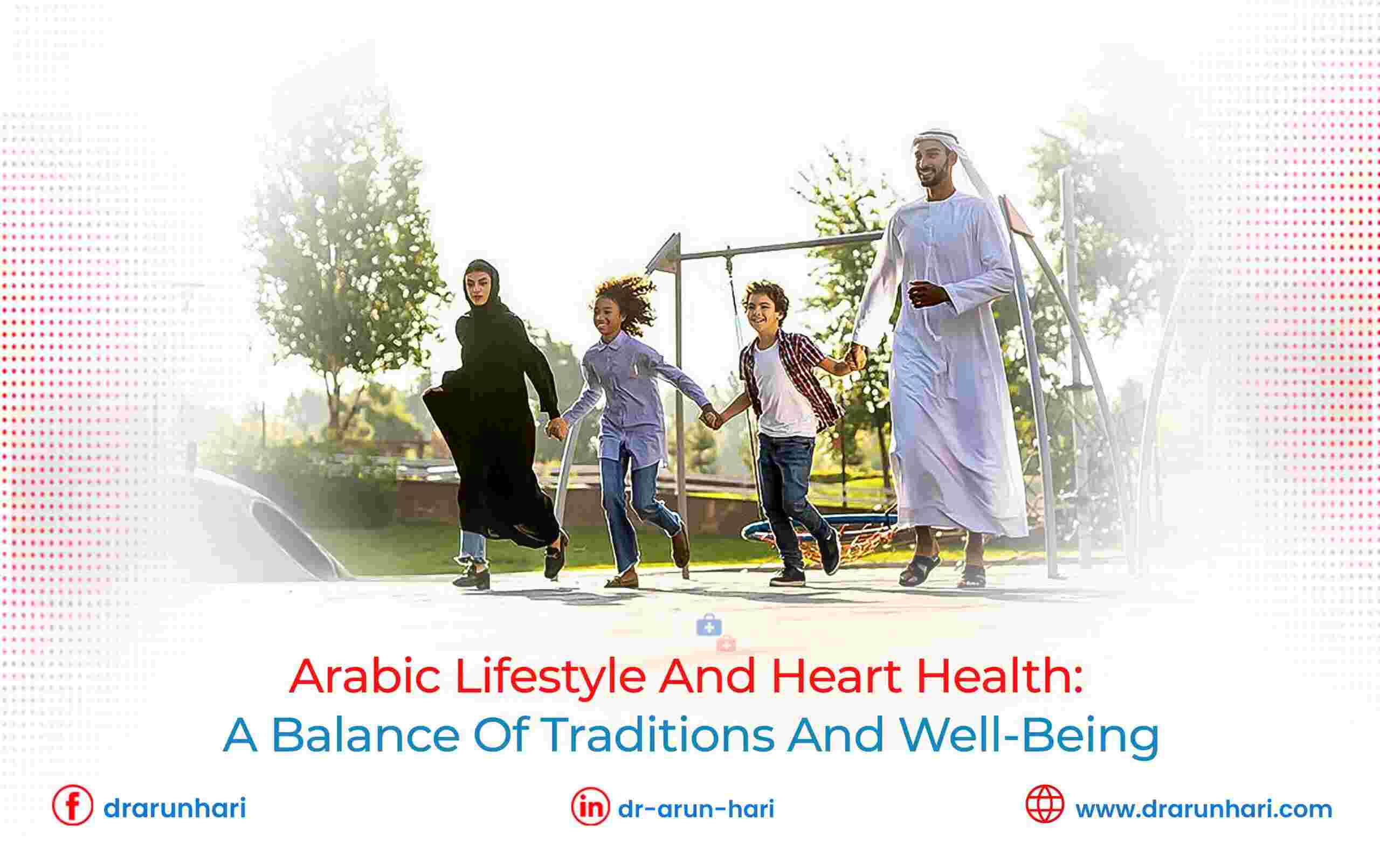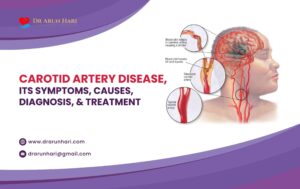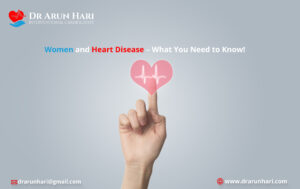Diet: A Fusion of Flavors & Nutrients
Physical Activity: Embracing an Active Lifestyle
Social Bonds: Nurturing Heartfelt Connections
Meet Doctor Arun for Your Sound Heart Health!
Arabic Lifestyle and Heart Health
The Arabic lifestyle, rich in cultural heritage & traditions, is closely intertwined with various aspects of daily living, including diet, physical activity, and social interactions. This lifestyle has evolved over centuries and reflects the values & beliefs of the Arab world. While it celebrates a deep-rooted cultural identity, it also presents a unique perspective on heart health that can offer valuable insights to the rest of the world. So, we can say that Arabic lifestyle and heart health are knotted in this closely knit cultural unit.
Diet: A Fusion of Flavors & Nutrients
Arabic cuisine is known for its aromatic spices, flavourful herbs, and diverse range of dishes that bring families & communities together. The traditional Arabic diet is characterized by its emphasis on whole foods, such as fruits, vegetables, legumes, nuts, and lean proteins. Olive oil is a staple, rich in heart-healthy monounsaturated fats, and its consumption has been linked to reduced risk of cardiovascular diseases. The Mediterranean diet, which shares similarities with the Arabic diet, has been widely studied & recognized for its positive impact on heart health. High consumption of fibre-rich foods & antioxidants, found abundantly in Arabic dishes, contribute to lower cholesterol levels and improved blood vessel function. Traditional Arabic dishes like hummus, tabbouleh, and falafel are not only delicious but also heart-conscious choices.
Physical Activity: Embracing an Active Lifestyle
Arabic culture places a strong emphasis on physical activity, often integrated into daily life. Traditional activities like dancing, camel racing, and even the vibrant art of belly dancing are not only forms of entertainment but also avenues for exercise. Many traditional jobs, such as fishing and farming, involve manual labour that keeps individuals physically active. Engaging in regular physical activity is a key factor in maintaining heart health. The Arabic lifestyle’s inclination towards active pursuits helps to keep the cardiovascular system robust, maintaining healthy blood pressure levels and promoting overall fitness.
Social Bonds: Nurturing Heartfelt Connections
Family & community are the cornerstones of Arabic society. Strong social connections show positive impact on heart health. This is by reducing stress levels & promoting emotional well-being. Regular gatherings & communal meals foster a sense of belonging and contribute to lower instances of depression and anxiety, which are risk factors for heart diseases.
Challenges in Modern Times
While the traditional Arabic lifestyle holds many heart-healthy elements, it is essential to acknowledge the challenges posed by modernization. Societies are shifting towards more sedentary lifestyles. They are adopting processed foods. So, there is a constant risk now of losing the health benefits ingrained in traditional practices. The prevalence of smoking, another significant risk factor for heart disease, is also a concern. Efforts to promote heart health in the Arab world should aim to strike a balance between preserving cultural heritage & adapting to modern times. Education should teach about the importance of maintaining a healthy diet. Also, engaging in regular physical activity is must! Information about avoiding tobacco products is also vital. All this safeguards the heart health of future generations.
Meet Doctor Arun for Your Sound Heart Health!
As we talk about Arabic lifestyle and heart health, we can say that the Arabic lifestyle, with its vibrant blend of culinary traditions, physical activities, and strong social bonds, offers a valuable lesson in heart health. By embracing whole foods, staying active, and nurturing meaningful connections, the Arab world exemplifies a lifestyle that promotes cardiovascular well-being. Modern world is complex! There is much to learn from the Arabic way of life! A harmonious integration of culture & health resonates far beyond its borders. You can meet Doctor Arun for always having sound heart health.




